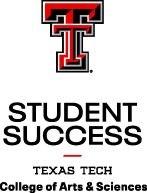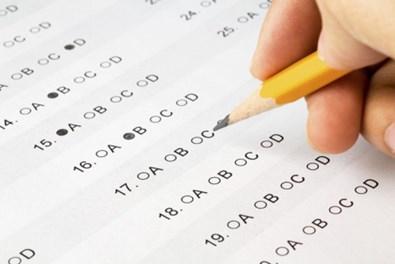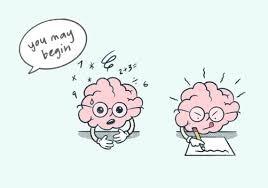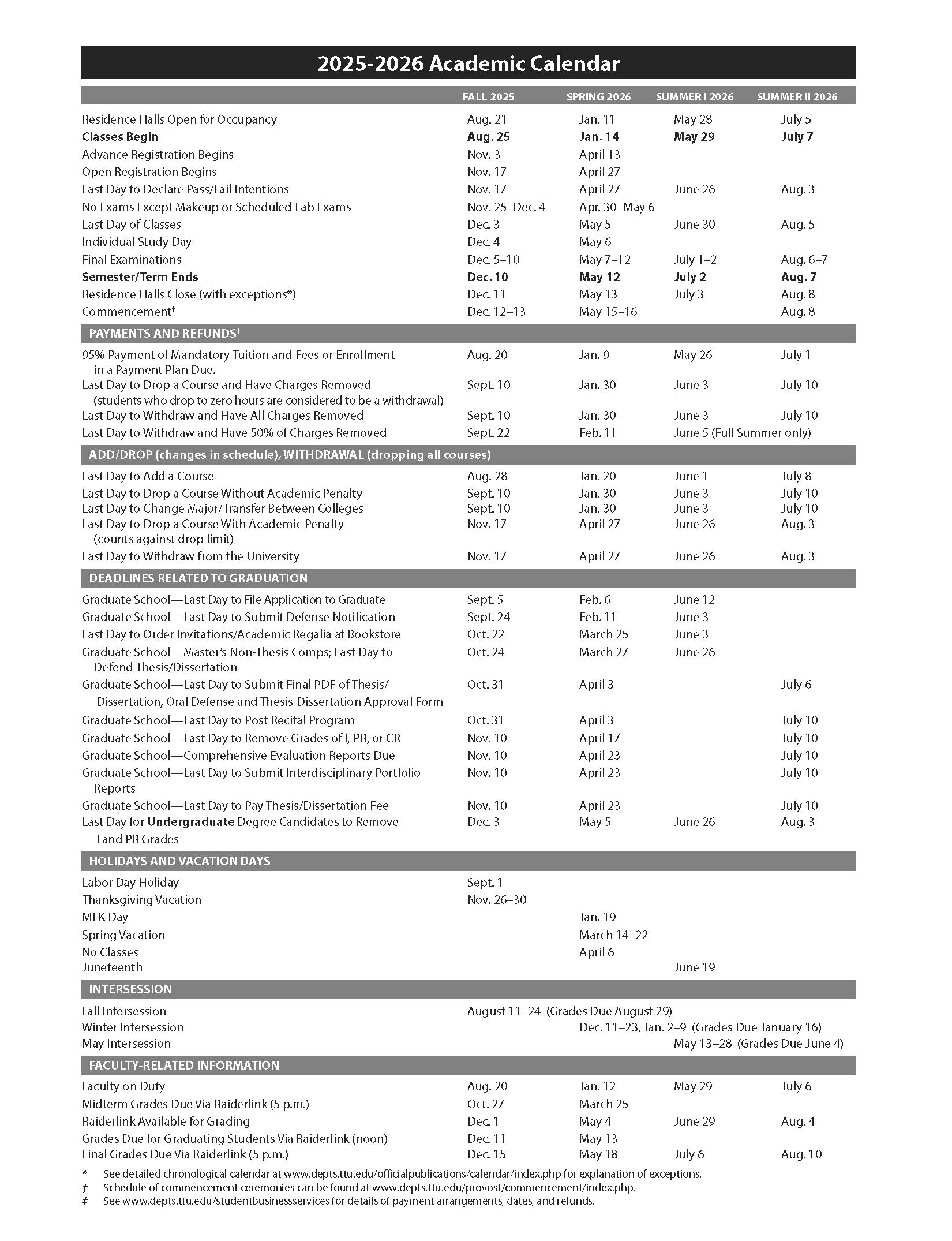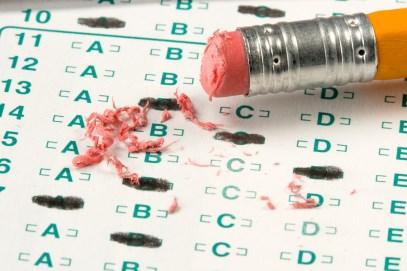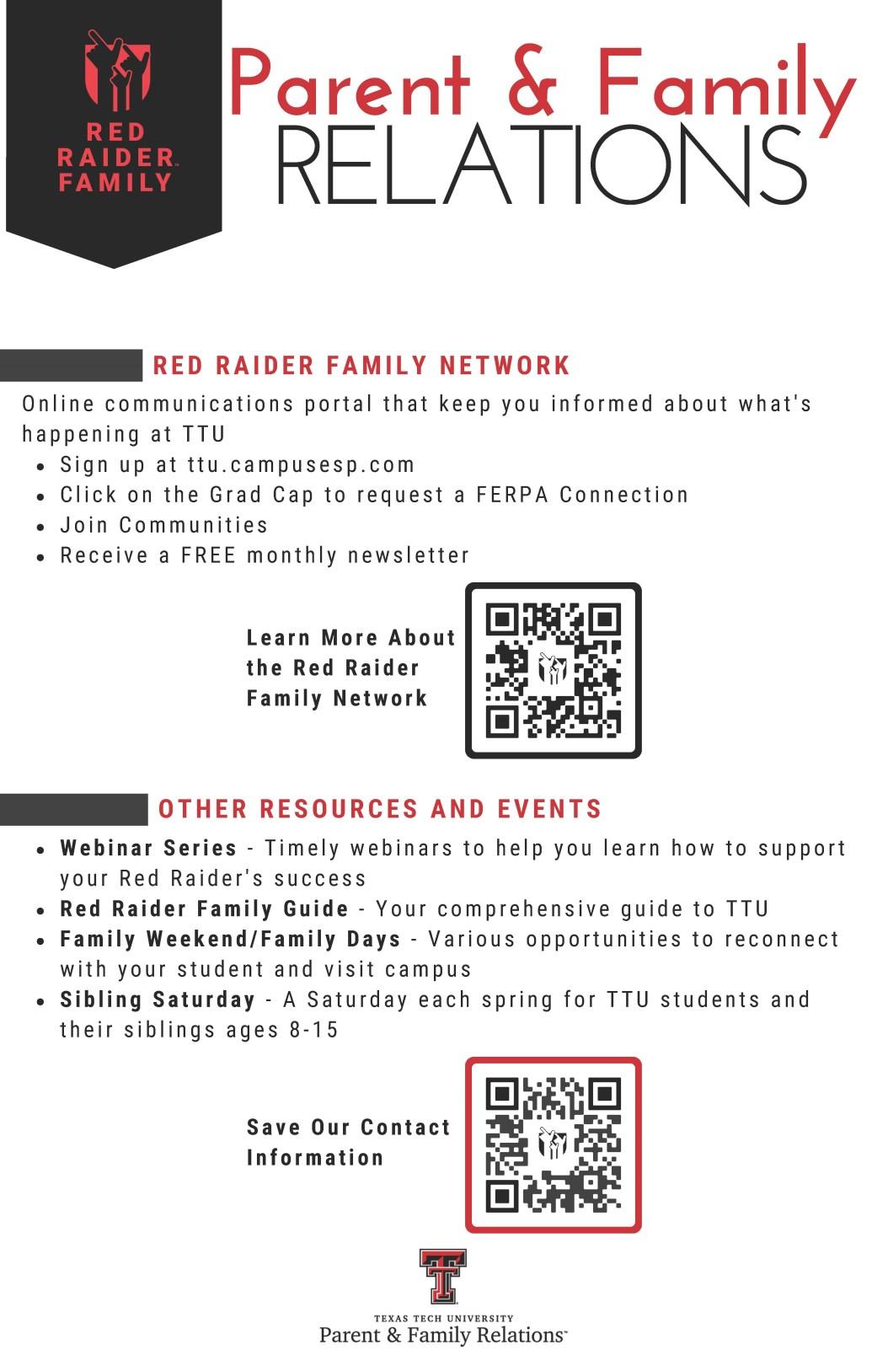STRATEGIES FOR SUCCESS
10 HABITS OF SUCCESSFUL STUDENTS
1. Get organized. Making a plan for what you're going to do and when you're going to do it will make sure you're always ahead of the curve - literally.
2. Don't multitask. Studies have shown that multitasking is physically impossible.
3. Divide it up. Studying isn't fun to begin with, and forcing yourself through a study marathon will only make it worse. Dividing your work into manageable chunks and rewarding yourself when you finish each chunk will make studying (more) fun.
4. Sleep. Don't underestimate the importance of those eight hours of zzz's every night! Getting a good night's rest will sharpen your focus and improve your working memory.
5. Set a schedule. Do you work better right after school or after you've eaten dinner? Are you more productive in 90-minute blocks or half-hour spurts? Find a schedule that works for you, and stick to it.
When you finish your homework at 3 am..
6. Take notes. Taking notes will not only keep you more engaged during class, but will also help you narrow down what you need to study when exam time rolls around. It's much easier to reread your notes than to reread your entire textbook!
7. Study. This one might be obvious, but did you know that there's a right and a wrong way to study? Review your material several days ahead of time, in small chunks, and in different manners (for example, write flashcards one day and take practice tests the next). In other words, don't cram.
8. Manage your study space. Find a place that will maximize your productivity. Look for places away from the television and other distractions. Whether it's your local library or just the desk in your bedroom, set aside a study space that you'll want to spend time in.
9. Find a study group. Sitting down with a group of people who are learning the same things as you is a great way to go over confusing class material or prepare for a big test. You can quiz each other, reteach material, and make sure that everyone is on the same page. After all, teaching someone else is the best way to learn.
10. Ask questions. You're in school to learn, so don't be afraid to do just that! Asking for help from a teacher, a tutor or your friends is a surefire way to make sure you truly understand the material. © 2020 Opportunity International, a 501(c)3 nonprofit. All rights reserved. Terms & Conditions
TEST TAKING TECHNIQUES
There is no substitute for preparation. If you don't know the test material, all the test taking techniques in the world won't save you. Preparation is key.
1. Always Arrive Early And Take A Moment To Relax
Relaxation can increase your confidence.
You'll be able to narrow your focus for the upcoming test.
Arriving early may allow you time to ask any last-minute questions from the instructor or listen to explanations being provided to other students.
2. Listen Attentively To Last Minute Instructions Given By The Instructor
It is not uncommon for teachers to alter test details at the last minute.
If you miss test instructions, test taking anxiety will increase.
If you miss test instructions, don't be scared to ask for instructions to be repeated.
3. Do A Memory Dump
As soon as you begin the test, write down information that you will likely need to know for the test and you fear you may forget. (ie., formulas, equations, dates, lists, etc.)
Memory dumps can be particularly useful for improving performance on certain types of tests.
4. Read Test Directions Very Carefully And Watch For Details
Test questions and directions often contain valuable information. Always read all directions carefully to ensure you understand what is being asked.
Often there will be two correct answers on a multiple-choice question. Pay attention to details.
Frequently, test instructions will notify students that they only need to complete two questions, but there will be 5 options.
6. Look For Cues
5. Plan How You Will Use The Allotted Time
Estimate how much time you'll have for each section of the test and each question. Allow enough time for more difficult sections or sections that are weighted more heavily in the final test grade.
Pace yourself so you can complete the test in the allotted time frame.
Complete questions you know first then come back and tackle problems you're not sure about after.
Pay attention to grammatical matching between questions being asked and answers. If an answer seems correct but doesn't match grammatically with the question, it probably isn't the correct answer.
Look for cues from other questions.
NEEDING SOME HELP WITH TIME MANAGEMENT?
The Eisenhower Matrix is a great way to determine what is important and what can be put off to a later time. Utilizing it and establishing a Block Schedule in your day planner are great ways to stay organized, on-time and relieving the stress of a very busy schedule. It will also assist in having more free time to do other things that you enjoy.
EISENHOWER MATRIX
URGENT NOT URGENT
DO IT
Things with clear deadlines and consequences for not taking immediate action.
Examples:
Assignment Deadlines
Exams
Last Minute Preparations
True Emergencies
SCHEDULE IT
Activities without hard deadlines that bring you closer to your goals.
Caution: Don’t procrastinate on these.
Examples:
Reading Assignments
Reviewing Lecture Notes
Planned Study
Exercise & Health
DELAY/AVOID IT
Things that need to be done, but don’t require specific times. Busy Work.
Examples:
Some Emails & Phone Calls
Some Meetings
Other People’s Priorities & Expectations
Activities Outside of Courses.
DELETE IT
Distractions that are a last priority & could be dropped. May be ok, but only in moderation.
Examples:
Social Media
Surfing the Internet
Games, Watching TV/Videos
Time Wasters
BLOCK SCHEDULING
FIXED TIME: This would be times that do not change each week. Ex. Course Times
WORK TIME: The times you work need to be updated as you receive your schedule.
STUDY TIME: These times include more than assignments that are due. They may be Professor Office Visits, Reading Assignments, Reviewing Past Assignments, Tutoring, etc.
FREE TIME: Always schedule time to relax and to do the things you enjoy that are outside of school and work. These help to keep you from burning out and result in better production and success.
TIPS FOR MANAGING STRESS
The key to managing stress is to remember that stress is not inherent in any event. It lies in how we perceive that event. If you are feeling like you need assistance in managing stress, make sure to schedule an appointment with one of our A&S Office of Student Success Academic Success Advisors. “You need enough tension in your violin string to make music, but not so much that the string snaps”.
☺ Eliminate “solutions” that impair your health such as tranquilizers, sleeping pills, alcohol and cigarettes.
☺ Recognize short-term solutions such as shouting, crying or taking a hot bath, to be what they areShort Term.
☺ Prioritize your tasks into “essential”, “important”, and “trivial”. Follow that order for completing tasks. Consider dropping all the “trivials”. Take one thing at a time.
☺ Try to be happy with a less than perfect performance from yourself.
☺ Change your internal language. Instead of saying “I have to…”, say “I choose to…”. Instead of getting down on yourself, support yourself the way you would support your best friend.
☺ Learn to organize your time. There are many classes and books available on time management.
☺ Take care of your body. Eat well, get enough sleep, and exercise regularly.
☺ Learn to accept what you cannot change. If the problem is beyond your control now, try to let go of it until you can change it.
☺ When you feel stress setting in, observe your body and learn where it hits, what happens first. The earlier you can recognize stress signals, the easier it is to change your behavior and stop the progress of the stress.
☺ When you are stressed, choose fight or flight. Hiding your anger is more stressful then expressing it but choose your fights. Make sure it’s worth it.
** Information adapted from Support Operations for Academic Retention (SOAR), Texas Tech University.
ACADEMIC ADVISING: It is always highly encouraged that all students meet with their Academic Advisor prior to registering for courses each semester. Because of the number of students, it is important to contact your advisor early in the semester to get your appointment scheduled. Schedule Advising appointments through Raider Success Hub!
ARTS & SCIENCES
ARTS & SCIENCES UNDECLARED (Designations held within A&S Office of Student Success)
Arts & Sciences Undeclared (Temporary Designation)
Arts & Sciences Academic Transition (Temporary Designation)
BIOLOGY
Biology, Cell & Molecular Biology, Microbiology
CHEMISTRY
Biochemistry, Chemistry
CLASSICAL & MODERN LANGUAGES & LITERATURES
American Sign Language, Arabic, Chinese, Classics, French, German, Greek, Italian, Japanese, Latin, Portuguese, Russian, Russian Language & Area Studies, Spanish
ECONOMICS
Economics, International Economics
ENGLISH
English, Technical Communications
GENERAL STUDIES
Bachelor of General Studies, PreLaw (Temporary Designation)
GEOSCIENCES
Geography, Geosciences
HISTORY
History
KINESIOLOGY & SPORT MANAGEMENT
Kinesiology, Sport Management
MATHEMATICS & STATISTICS
Mathematics
PHILOSOPHY
Philosophy
PHYSICS
Physics
POLITICAL SCIENCE
Global Studies, Political Science
PSYCHOLOGY
Psychology, Psychological Sciences
SOCIOLOGY, ANTHROPOLOGY & SOCIAL WORK
Anthropology, Social Work, Sociology, Criminology
RENEWABLE ENERGY
Renewable Energy
Advisor Name
Karen York
Kristen Jones
Macee Thompson
Tatum Weeks
Laci McDermett
Morgan Hyman
Alex Rodriguez
Lizzie Moreno
Heather Higgins
Dorothy Dent
Carla Burrus
Stephanie Santos
Jose Jimenez
Diane Johnson
Dr. Justin Houser
Jeramey Gillilan
Shametrius Tucker
Celeste Yoshinobu
Courtney Bray
Treasa Austin
Tiffani Fair
Ana Flores
Miranda Ortiz
Patty Schovanec
Yancy Nunez
Diane Johnson
Deanna Licon
Sara Jackson
Maggie Durham
Joannie Hill
Kristen Holcomb
Taylor Rindlisbacher
Alexandra Haney
Stephen Phillips
Adrienne Scales
Kacey Marshall
TESTING FOR PLACEMENT & CREDIT
CLEP TEST: The College-Level Examination Program (CLEP) helps you receive college credit for what you already know. If you feel that you are interested in taking a CLEP test, review the linked information. See below for information on sending your test scores to TTU.
PLACEMENT EXAMS: Placement Exams are meant to help you be successful in your courses here at Texas Tech University. They are used to assess your present level of Spanish, Chemistry knowledge and Mathematical skills.
Sending Scores to Texas Tech University: Academic Testing Services does not receive test scores for certain exams. Listed below is contact information for retrieval of test scores and the appropriate Texas Tech offices to which scores must be mailed.
For TSI Assessment test results: Some schools administer the TSI Assessment as an institutional exam and scores may only be used for their institution. (TSI Office : 806.742.3242) Scores must be sent to:
Office of TSI Compliance
P.O. Box 45020
Lubbock, TX 79409
For AP test results: Contact 1-888-Call-4AP (1.888.225.5427) to request your test results. Texas Tech's AP code is 6827. Scores must be sent to:
Office of Admissions
P.O. Box 45005
Lubbock, TX 79409
For International Baccalaureate test scores: Contact (212)696.4464 or send request to: International Baccalaureate North America 475 Riverside Drive, 16th floor New York, New York 10115
For CLEP test scores: Contact 1.800.257.9558. Texas Tech's CLEP code is 6827. Scores may be sent directly or sent from the College Board. If you test with Academic Testing Services, scores are automatically reported to TTU. If sent from College Board, you need to request that they be sent directly to TTU.
Academic Testing Services
P.O. Box 45002 Lubbock, TX 79409
Please Notice: For ALL Scores, it is the student's responsibility to determine if they are taking the appropriate exam and whether official score reports will arrive at the Texas Tech Campus in time for advising or registration purposes.
Only "official scores" will be accepted for credit toward a course. Texas Tech will not accept the student's copy or a faxed copy.
Federal law that pertains to the release of, and access to, educational records. FERPA applies to personally identifiable information in educational records.
If a student wishes to give someone (such as a parent or spouse) permission to access information within their educational records, the student must complete the online FERPA form. Within the online FERPA form, students must specify the type(s) of records (e.g., admissions, academic, financial aid), as well as the name(s) of the individual(s) to whom access
The FERPA authorization only grants access to information. The FERPA authorization does not grant the right to act on the student’s behalf.
Red Raider Family Network: We are excited to provide the Red Raider Family Network to enhance your experience as a member of the Red Raider Family. This network will allow you to receive a monthly Red Raider Family Newsletter as well as additional customized information updates based on your interests. When you join, you can browse Communities based on your student's college or interests such as Student Success, Financial Aid and Scholarships, Student Life, and many Additionally, once you have an account, you can request a connection to your student so that you can view their class schedule, grades, holds on their account that need to be cleared up, and financial aid information. For more information and to sign up, go to:
https://www.depts.ttu.edu/parentrelations/
COMMON CAMPUS RESOURCES
Career Center
Counseling Center
806.742.3674, Flint Ave. & Main,
Learning Center
Drane Hall, Room 164
Math Tutoring Center
Math Bldg, Room 106
Raider Ride
Administrative Support Center, RM 145,
IMPORTANT
Science Lab Tutoring
Student Disability Services
Weeks Hall, Room 130
Supplemental Instruction (SI Sessions)
Drane Hall, Rm 135
Wellness Center
806.743.2848, 1003 Flint Ave.
Writing Center
Weeks Hall, 3rd Floor
PHONE NUMBERS
Finally, if you do not know where to go -
Contact A&S Office of Student Success. We don’t guarantee to have all the answers, but we will definitely work with you to find them.

